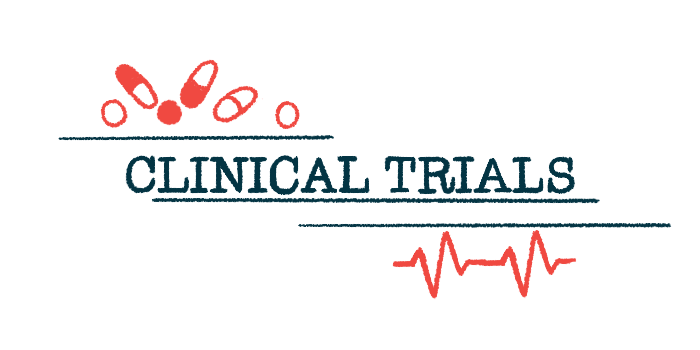CST-103 Shows Potential to Safely Aid Cognition in Phase 2 Trial
Oral therapy tested in Parkinson's patients with REM sleep behavior disorder
Written by |

Treatment with CST-103, CuraSen Therapeutics’ investigational oral molecule, safely led to cognitive improvements in people with Parkinson’s disease or mild cognitive impairment (MCI), according to top-line data from a Phase 2 clinical trial.
By combining the CST-103, which is able to enter the brain, with a molecule called CST-107, the treatment also avoided the known side effects of beta-2 adrenoceptor (B2-AR) agonists, a class of medications to which CST-103 belongs.
“We were able to clearly assess the effects of CST-103 on cognitive function and other endpoints without the dose-limiting [adverse events] normally seen with these agonists,” Anthony Ford, PhD, CEO of CuraSen, said in a company press release.
“These data provide strong support for the long-term development of [brain-penetrant B2-AR] agonists and validate CuraSen’s unique drug combination approach to treating poorly addressed symptoms in patients with neurodegenerative disease,” Ford added.
Potential therapy for problems with cognition due to Parkinson’s disease
Notably, the trial involved a significant proportion of Parkinson’s patients with REM sleep behavior disorder (RBD), a nonmotor Parkinson’s symptom that has been associated with more severe cognitive burden.
“The cognitive findings seen in the majority of patients with [Parkinson’s-RBD] bode well for our plans to launch a larger and longer Phase 2b study in 2023 in this population,” Ford said.
People with neurodegenerative diseases such as Parkinson’s and Alzheimer’s disease experience early dysfunction in a brain region called the locus coeruleus, which may emerge years before disease symptoms appear.
The locus coeruleus is the key site for production of norepinephrine, a brain signaling molecule involved in processes like attention, learning, memory, and sleep. As such, patients with problems in this brain region experience a range of symptoms, including cognitive impairment.
CST-103 is an agonist, or activator, of B2-ARs, the receptors to which norepinephrine binds to exert its effects, that can enter the brain and spinal cord. Essentially, the oral treatment aims to mimic norepinephrine’s actions in the brain to easing cognitive symptoms.
However, activating these receptors in the rest of the body can lead to serious cardiometabolic side effects with long-term use.
To minimize the potentially damaging effects of CST-103 outside the brain, CuraSen is combining its therapeutic candidate with CST-107, a molecule that blocks B2-ARs but cannot enter the brain. As such, it shouldn’t affect how CST-103 works in the brain.
In a previous Phase 1 trial involving eight people with Parkinson’s or MCI, a single dose of the CST-103/CST-107 combo significantly increased blood flow — suggesting greater activity — in several important brain regions, including ones critical for cognitive function.
The treatment was generally safe, without reports of the known side effects of B2-ARs agonists.
The Phase 2 trial (NCT04739423) enrolled 41 adults with neurodegenerative disease at sites in the U.K., Australia, New Zealand, and Europe. Eligible participants had Parkinson’s with REM sleep behavior disorder and depressive symptoms, MCI with depressive symptoms, dementia with Lewy bodies and cognitive fluctuation, or Parkinson’s with dementia.
Most participants had Parkinson’s and RBD, a condition marked by the lack of the muscle paralysis that normally occurs in the REM phase of sleep as a safety mechanism to limit body movements, causing patients to act out their dreams.
Signs of cognitive benefit reported at start of two-week treatment
Estimated to affect about 30% to 50% of Parkinson’s patients, the sleep disorder has been linked to a more rapidly progressing disease with greater cognitive and behavioral impairments.
Trial patients were randomly assigned to either CST-103/CST-107 or a placebo capsule, taken once a day, for two weeks. Following a washout phase of at least two weeks, the groups were switched, meaning that those initially assigned to the treatment were given a placebo for two weeks, and vice versa.
Results showed that CST-103/CST-107 was generally safe and well-tolerated. Most observed side effects were mild, with no serious or severe side effects deemed related to the combination therapy, the company reported.
There were no reports of side effects common to B2-AR agonists, such as elevated heart rate, high blood sugar, and low blood potassium levels.
Preliminary efficacy analyses associated the treatment with cognitive improvements across several measures. These gains were seen as early as one day after treatment and lasted longer than the treatment’s two weeks for some patients, the company stated.
CuraSen plans to discuss complete trial findings in an oral presentation at the Alzheimer’s and Parkinson’s Diseases Conference, to be held March 28–April 1, 2023, in Gothenburg, Sweden.
“We look forward to presenting the full results in March, as well as encouraging Phase 1 data from our second neurodegenerative program, CST-2032, in a second oral presentation,” Ford said.
The safety and efficacy of CST-2032 in combination with CST-107 is being evaluated in up to 60 adults with MCI or mild dementia due to Parkinson’s or Alzheimer’s disease in a Phase 2a trial (NCT05104463). Eligible Parkinson’s patients also need have REM sleep behavior disorder associated with their disease, but not hallucinations.
The study, which has a similar crossover design as the CST-103/CST-107 trial, has begun dosing and is currently recruiting patients at sites across the U.S. and in New Zealand.
It is expected to finish next year, and CuraSen plans to launch longer Phase 2 trials to test additional dose levels of the therapy in certain patient groups.



